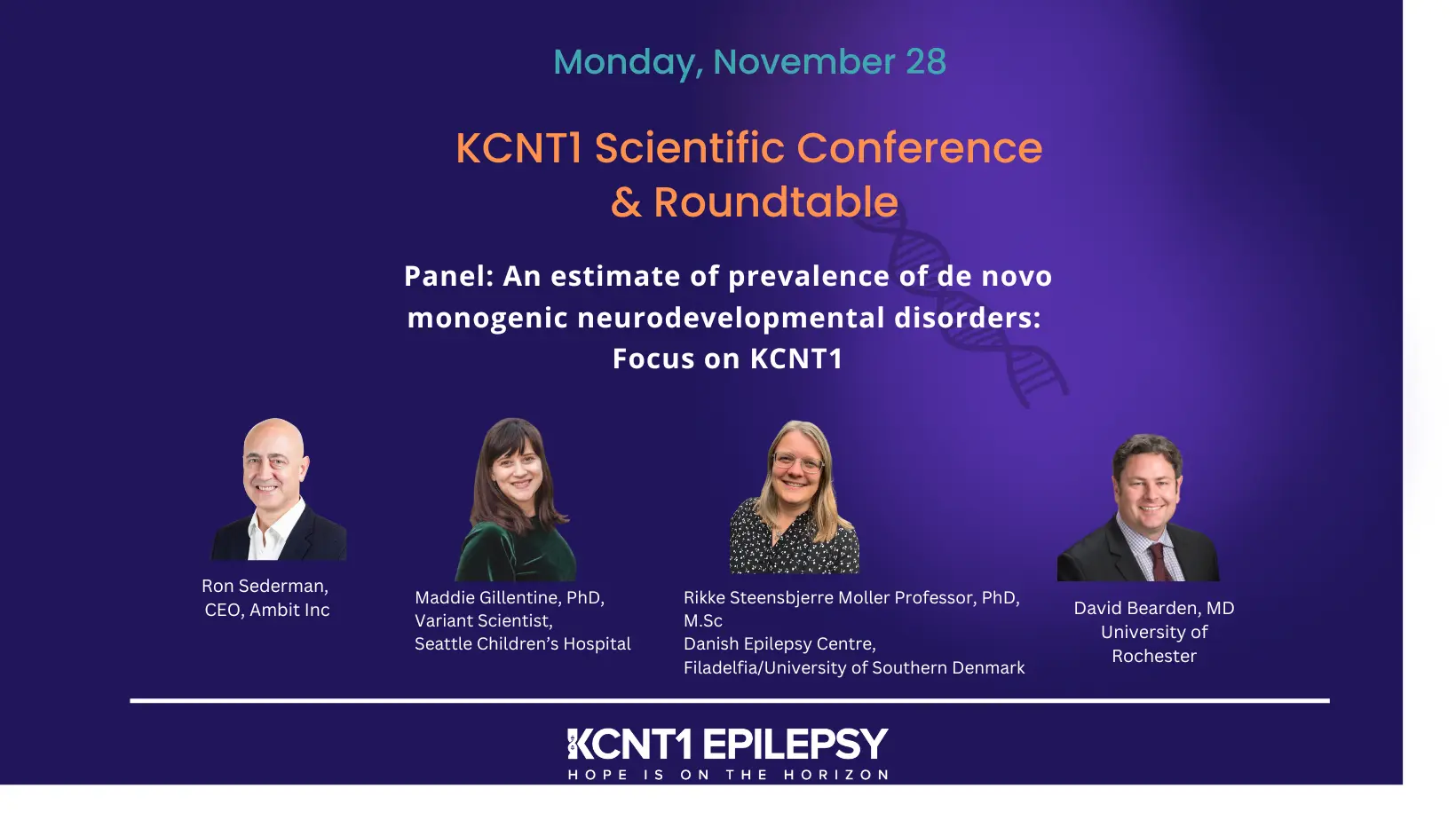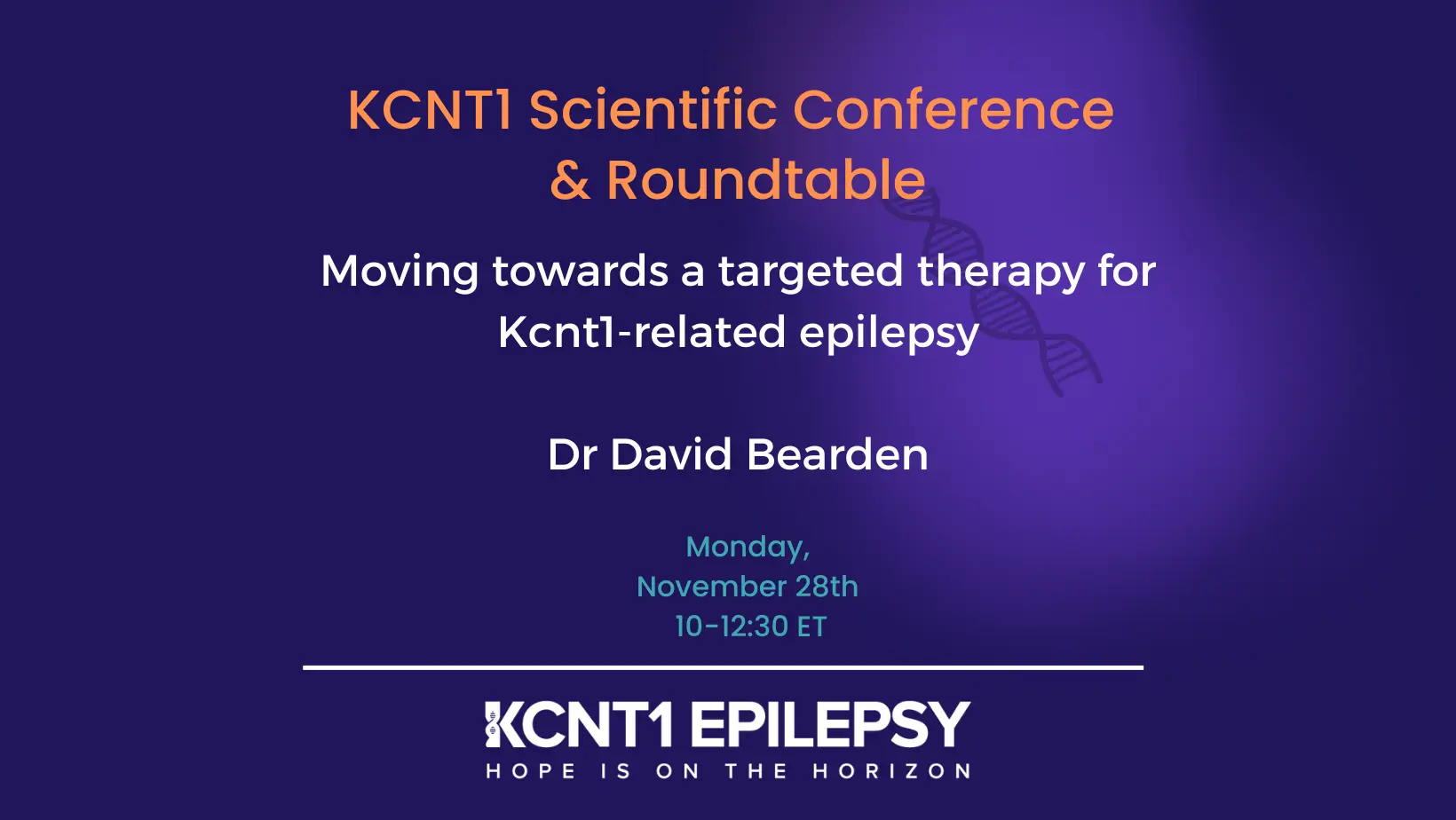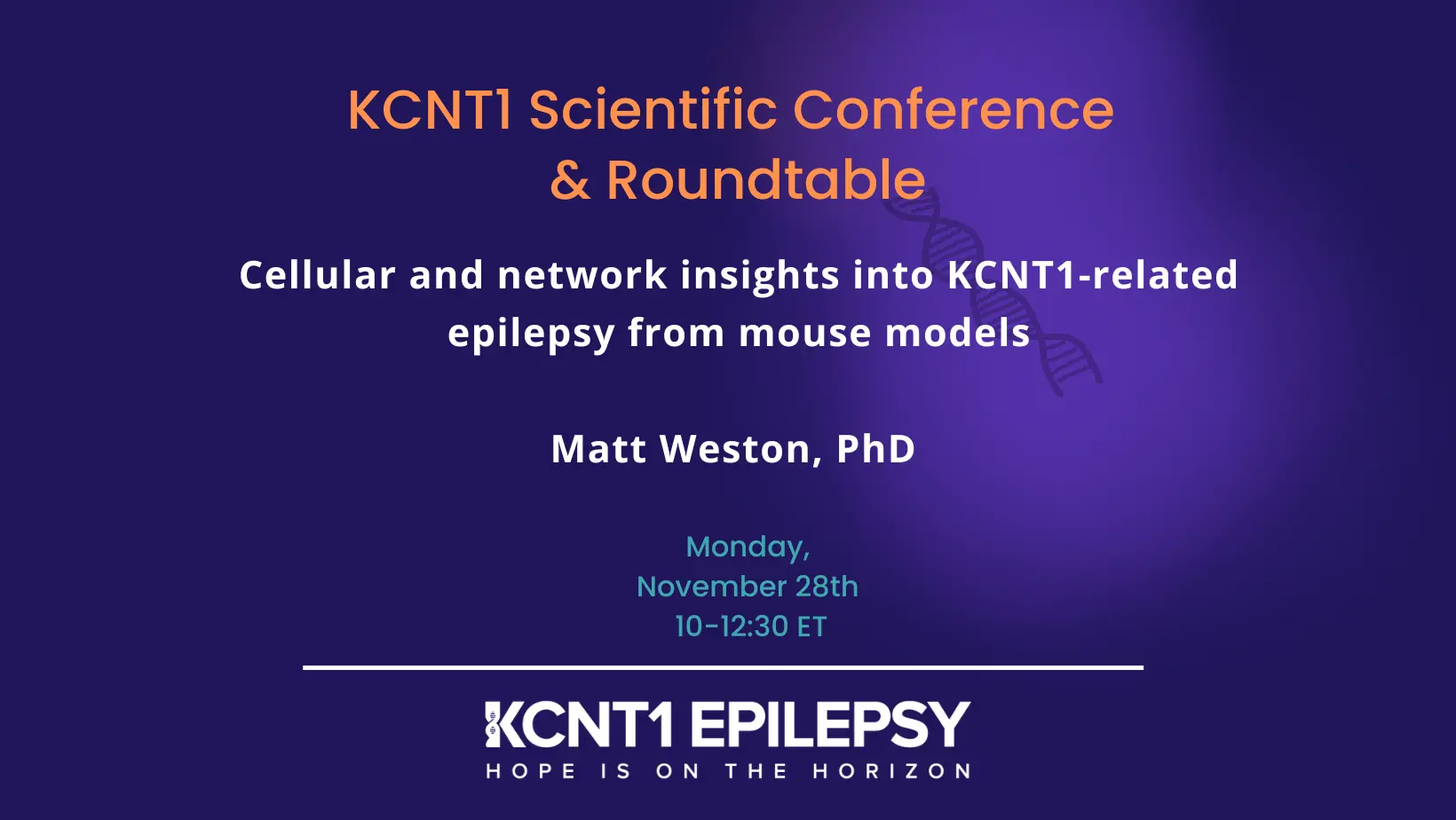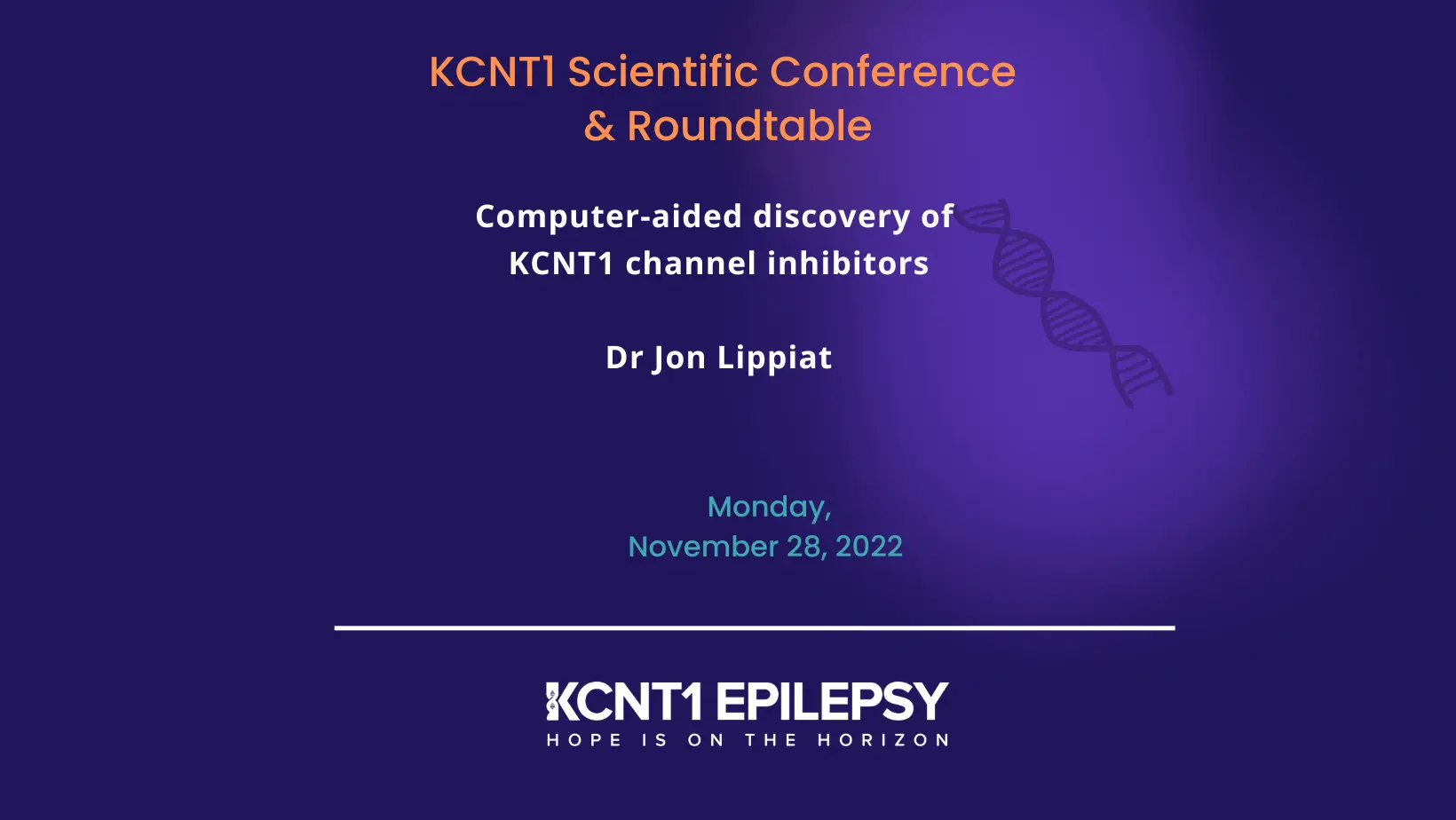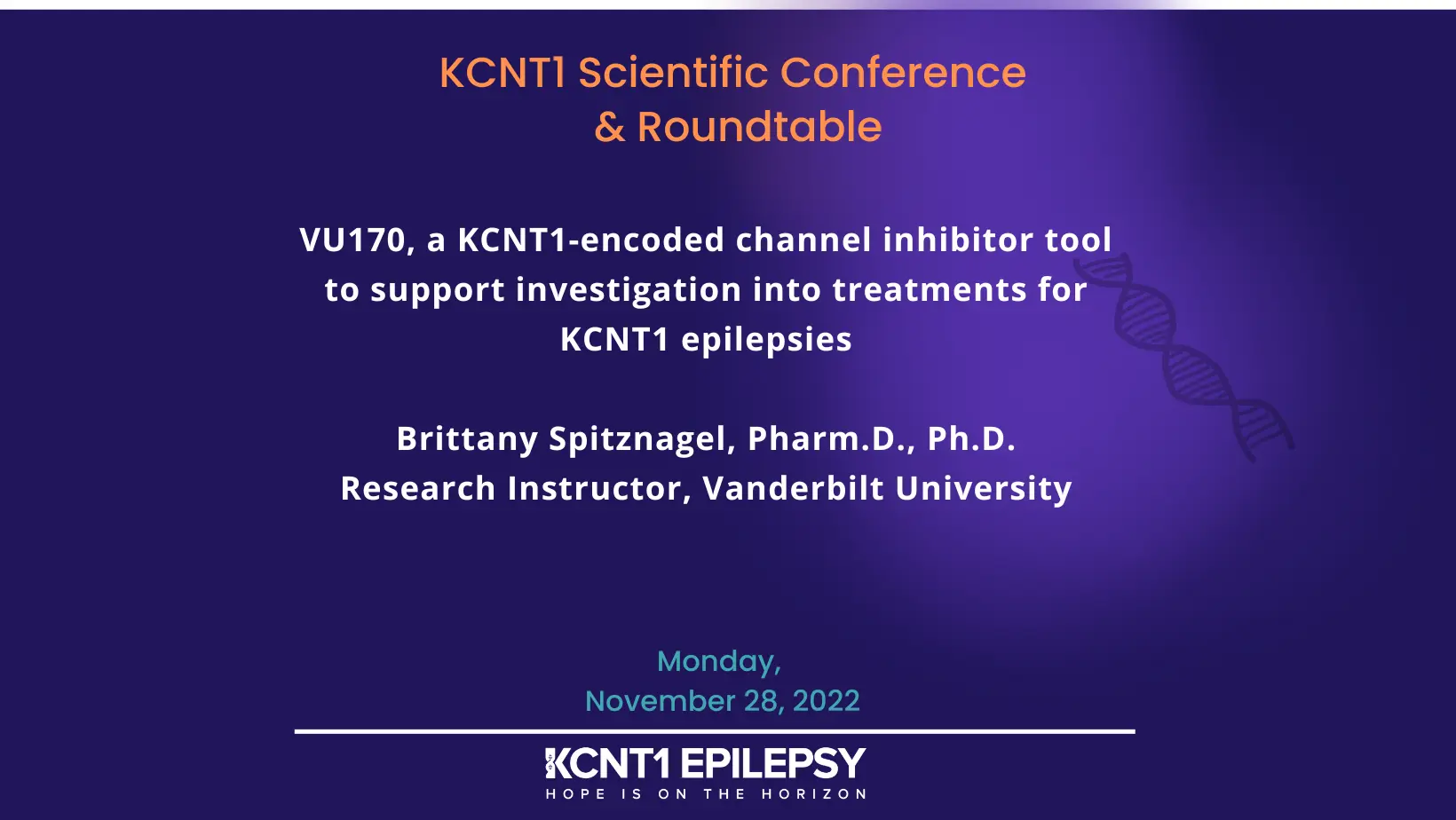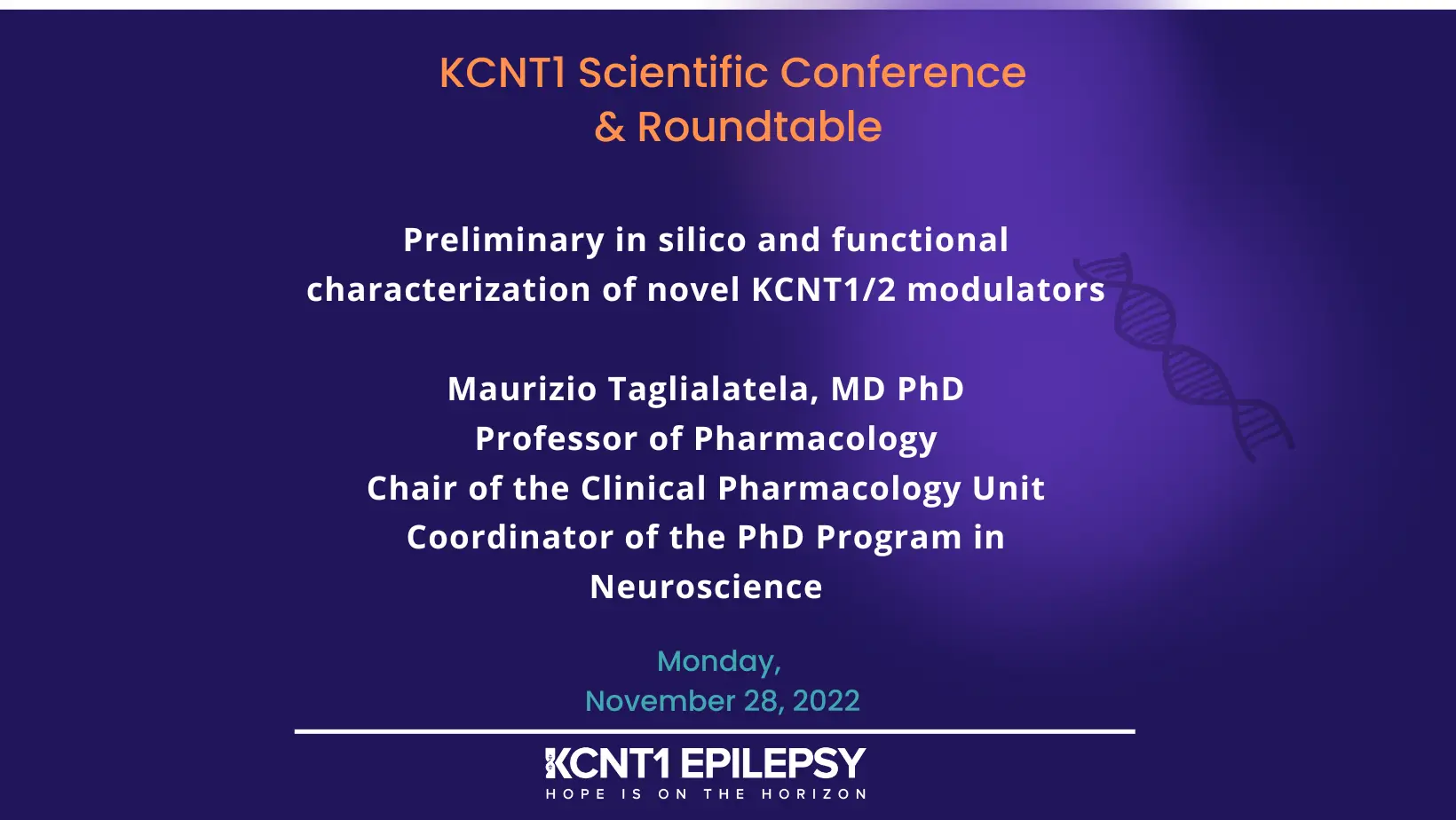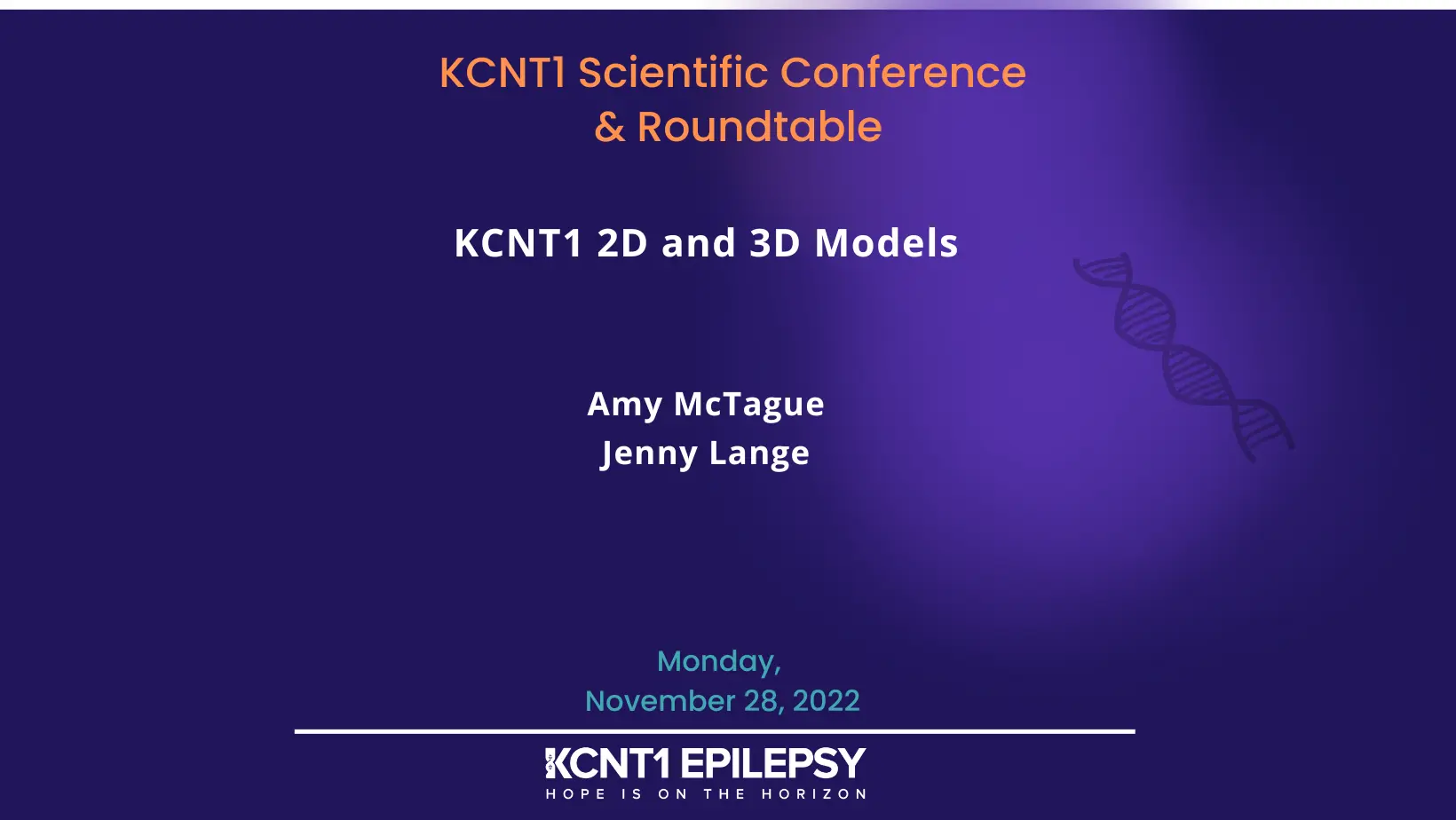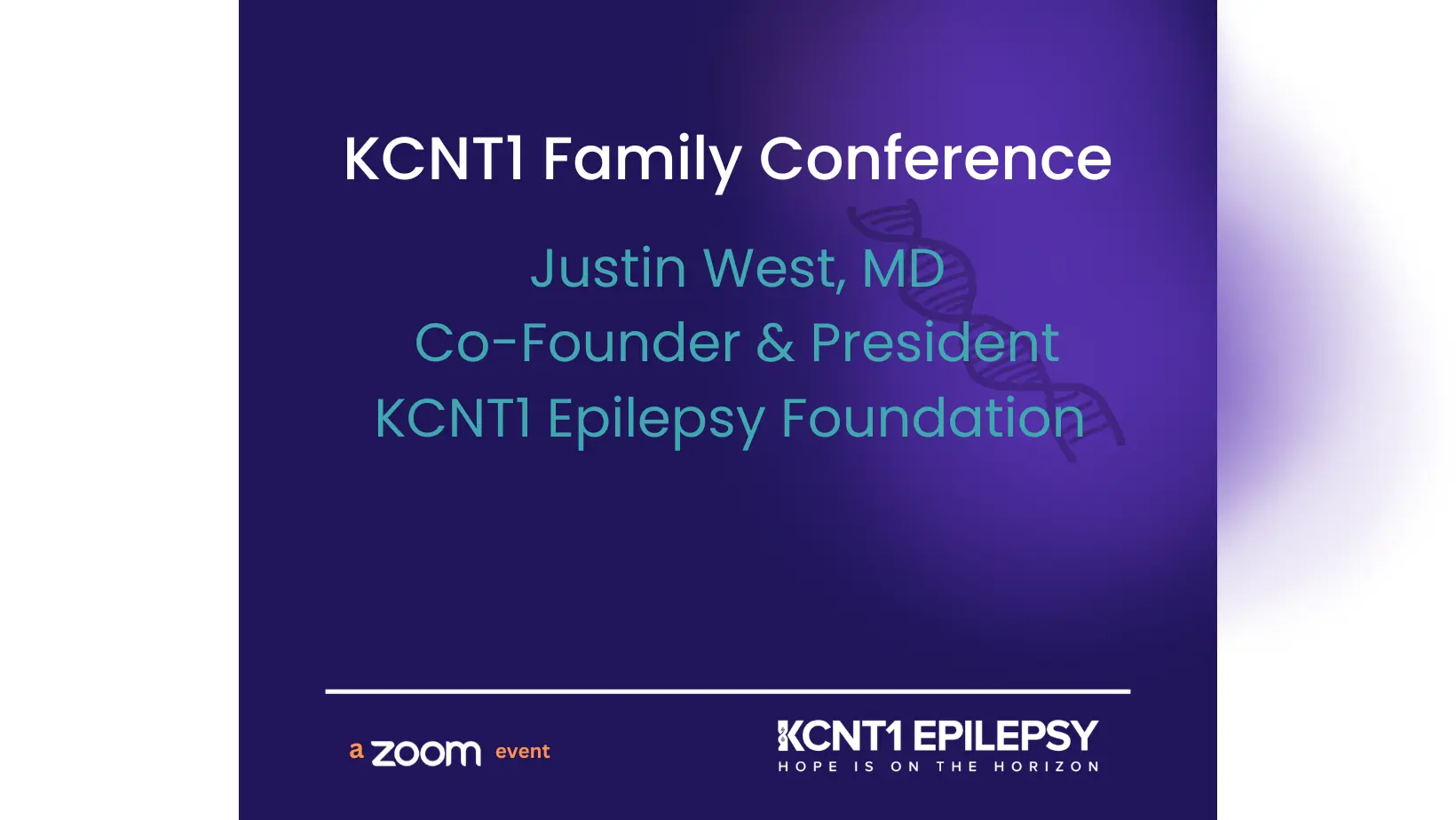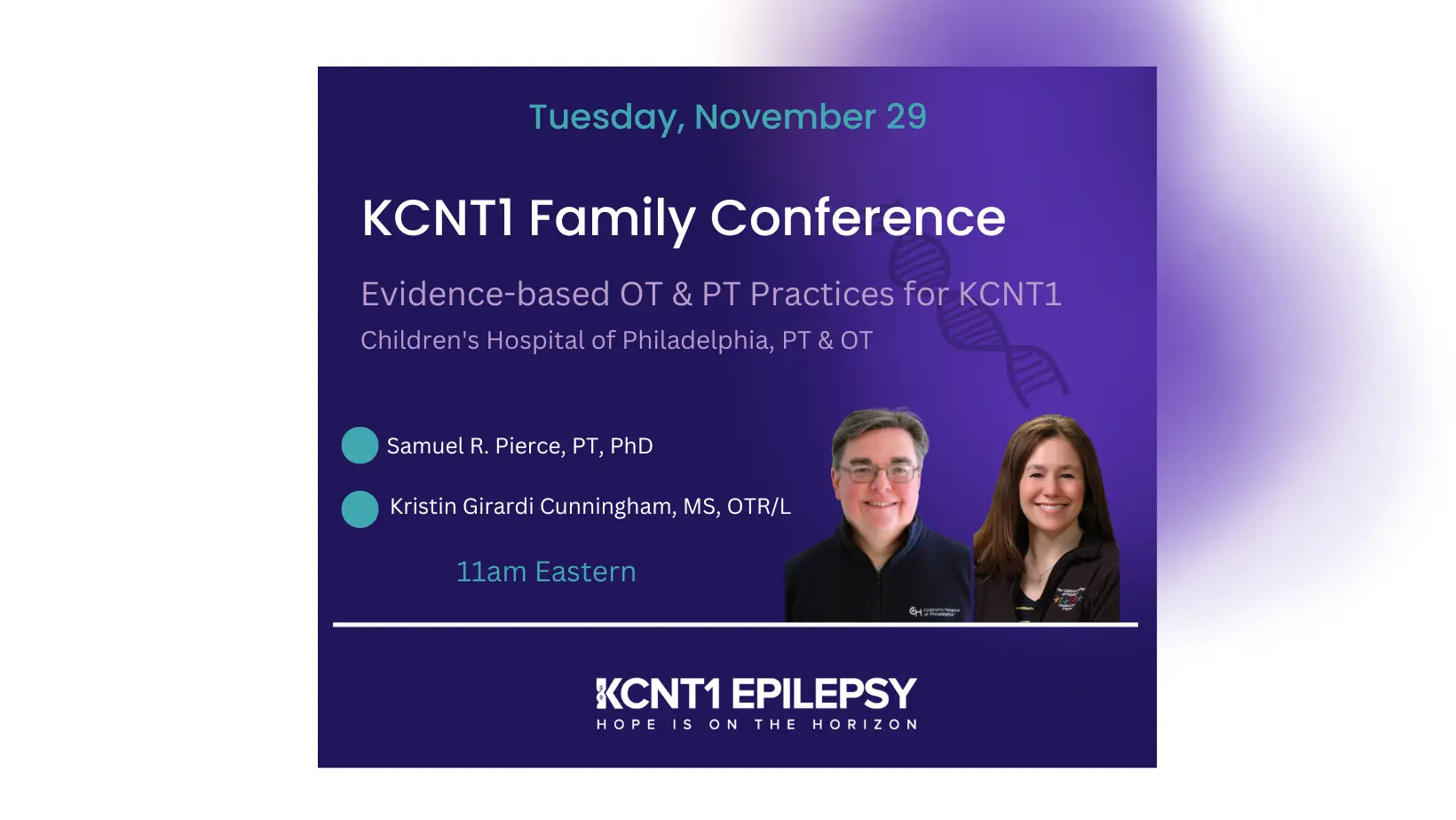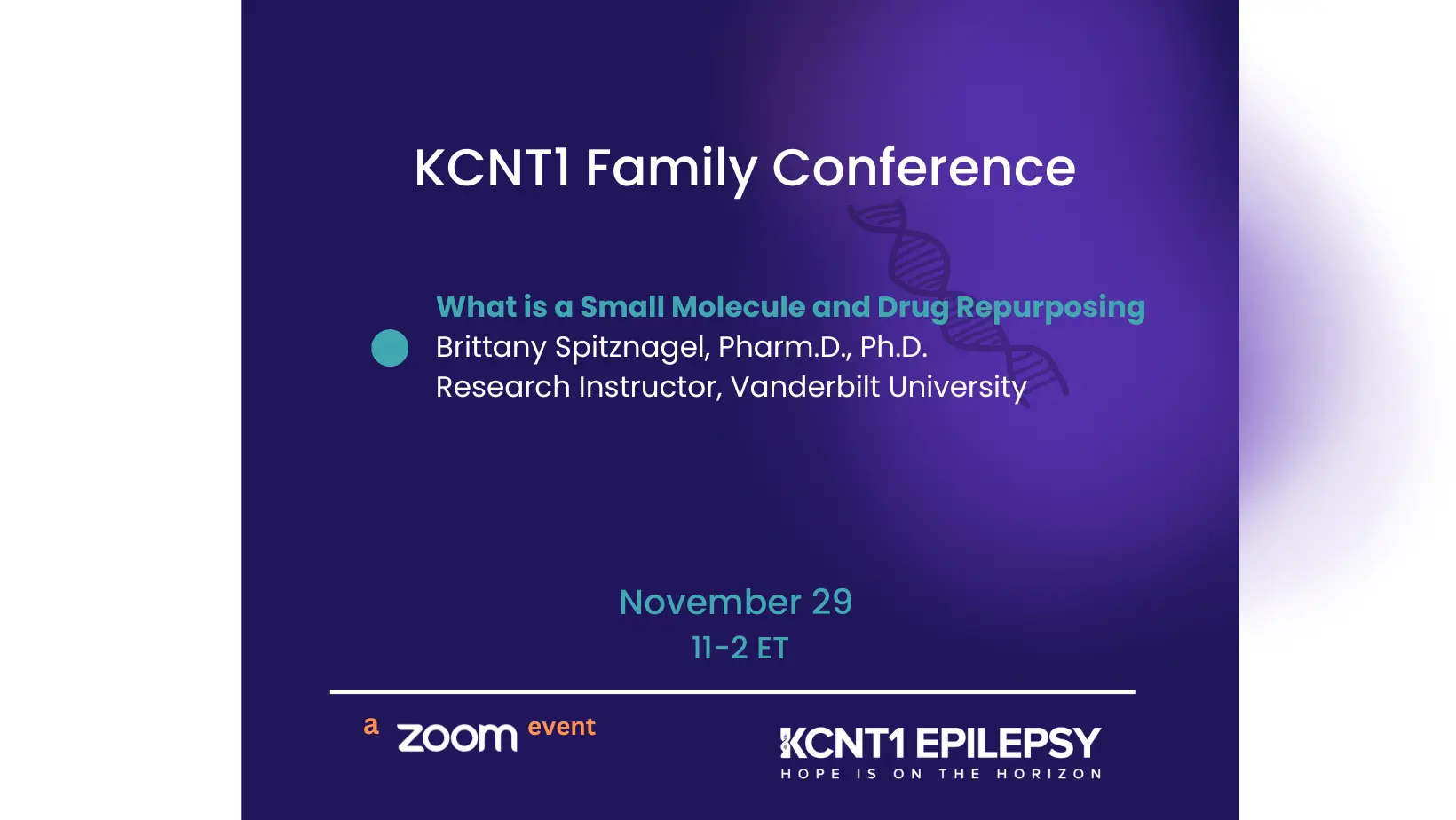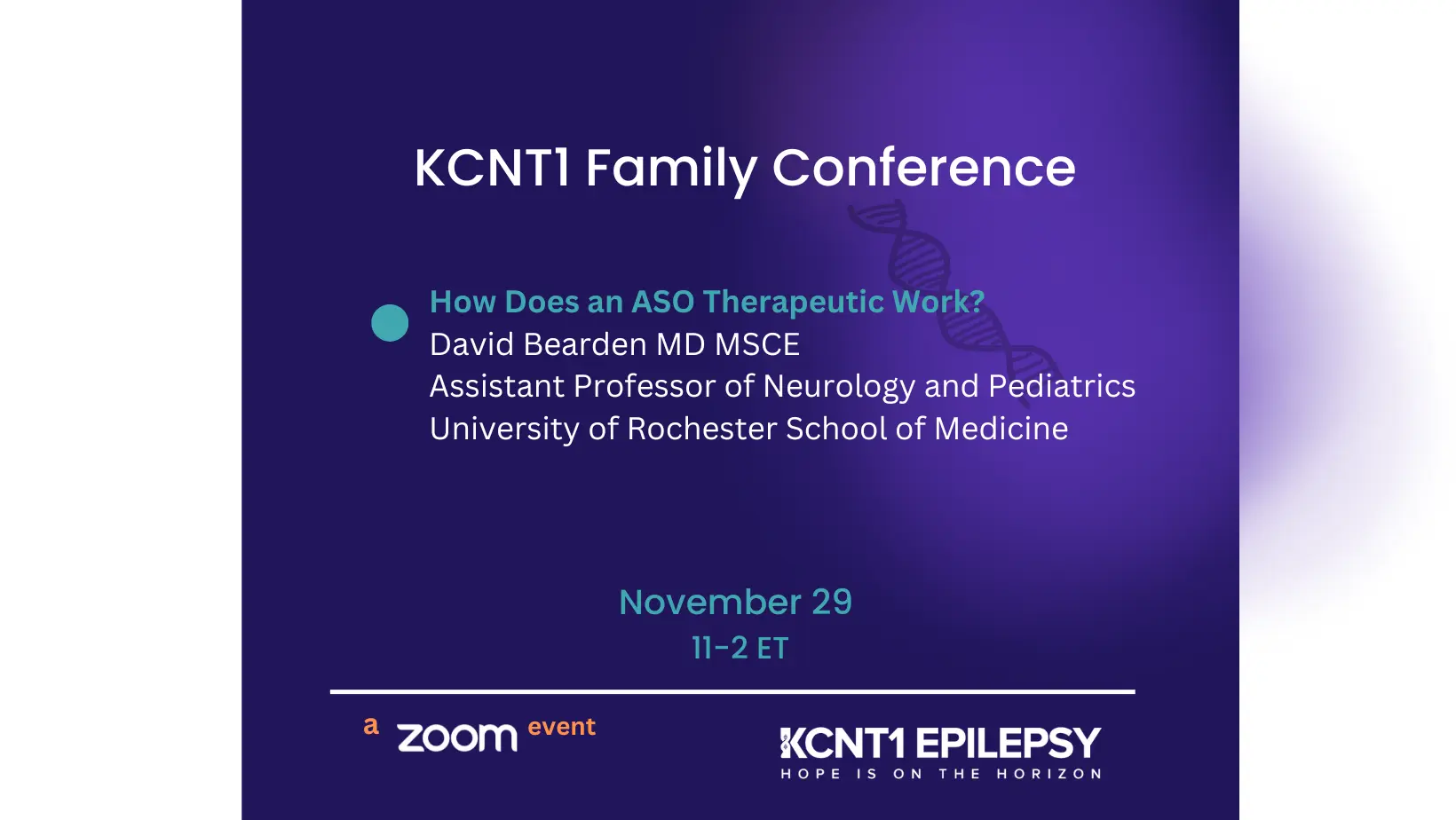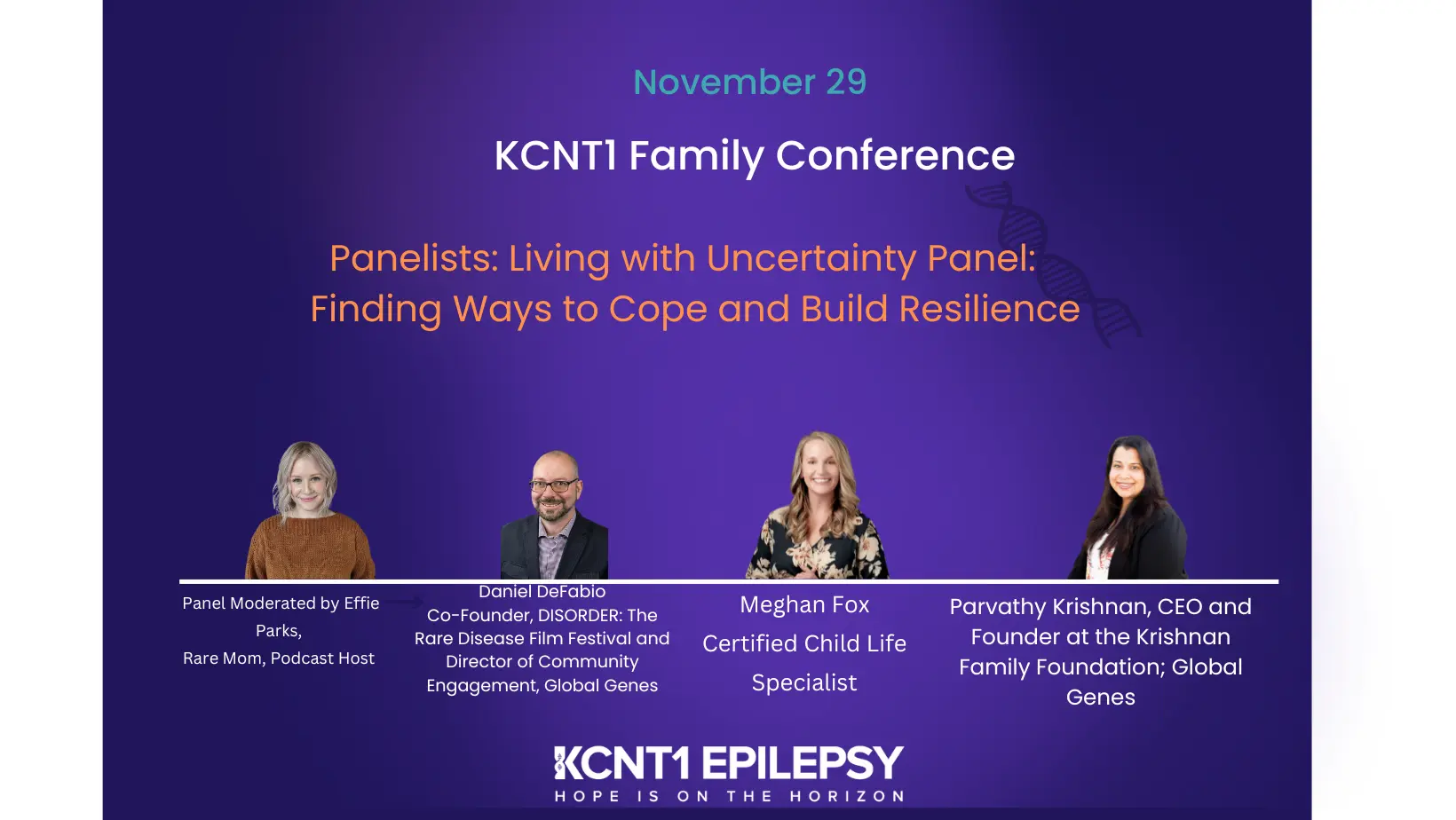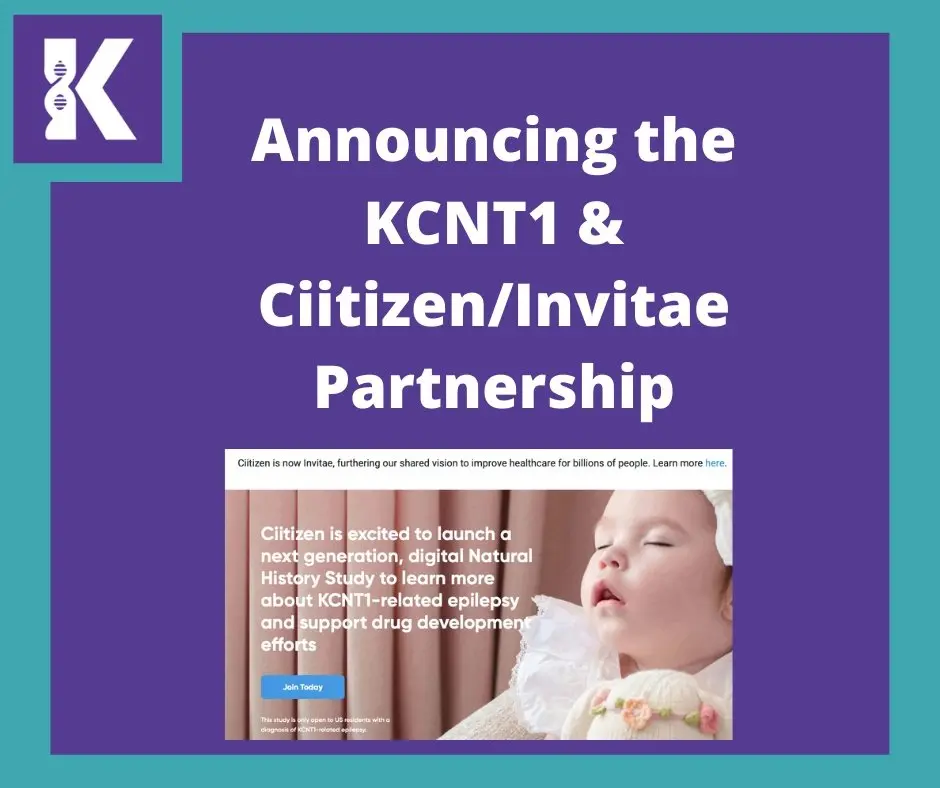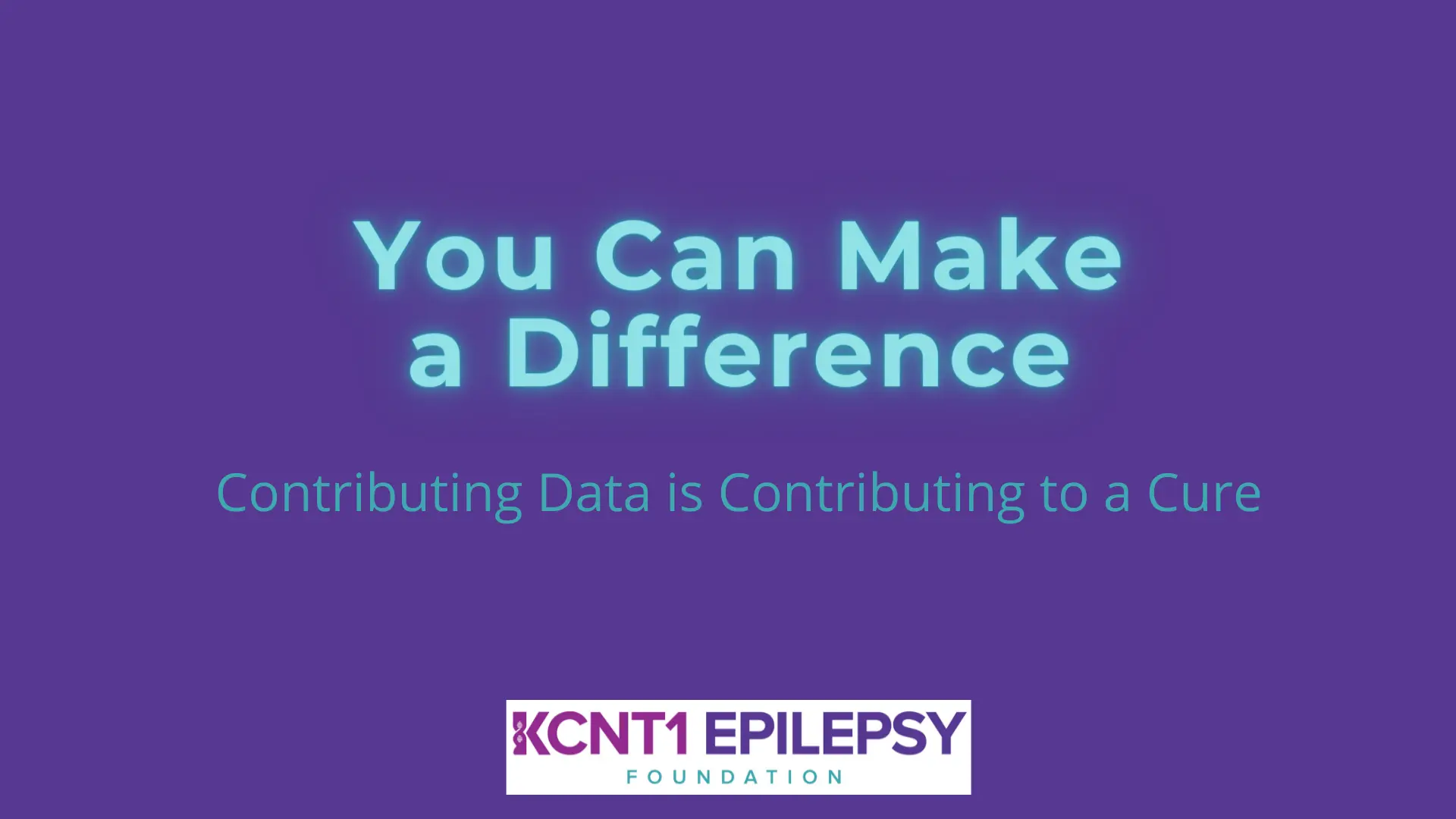Foundation Videos
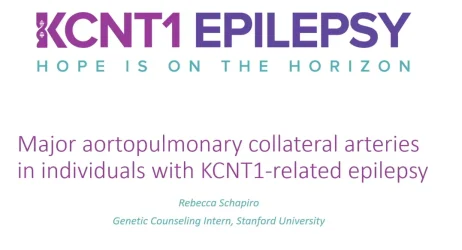
KCNT1 and the Heart
What do we know today?
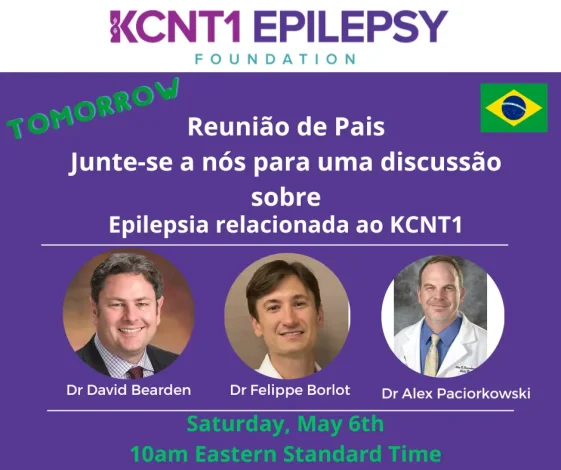
KCNT1 Overview and Q&A for Parents in Brazil
Parents submitted their questions for Dr David Bearden, Dr Alex Paciorkowski and Dr Felippe Borlot. In English and Portuguese.
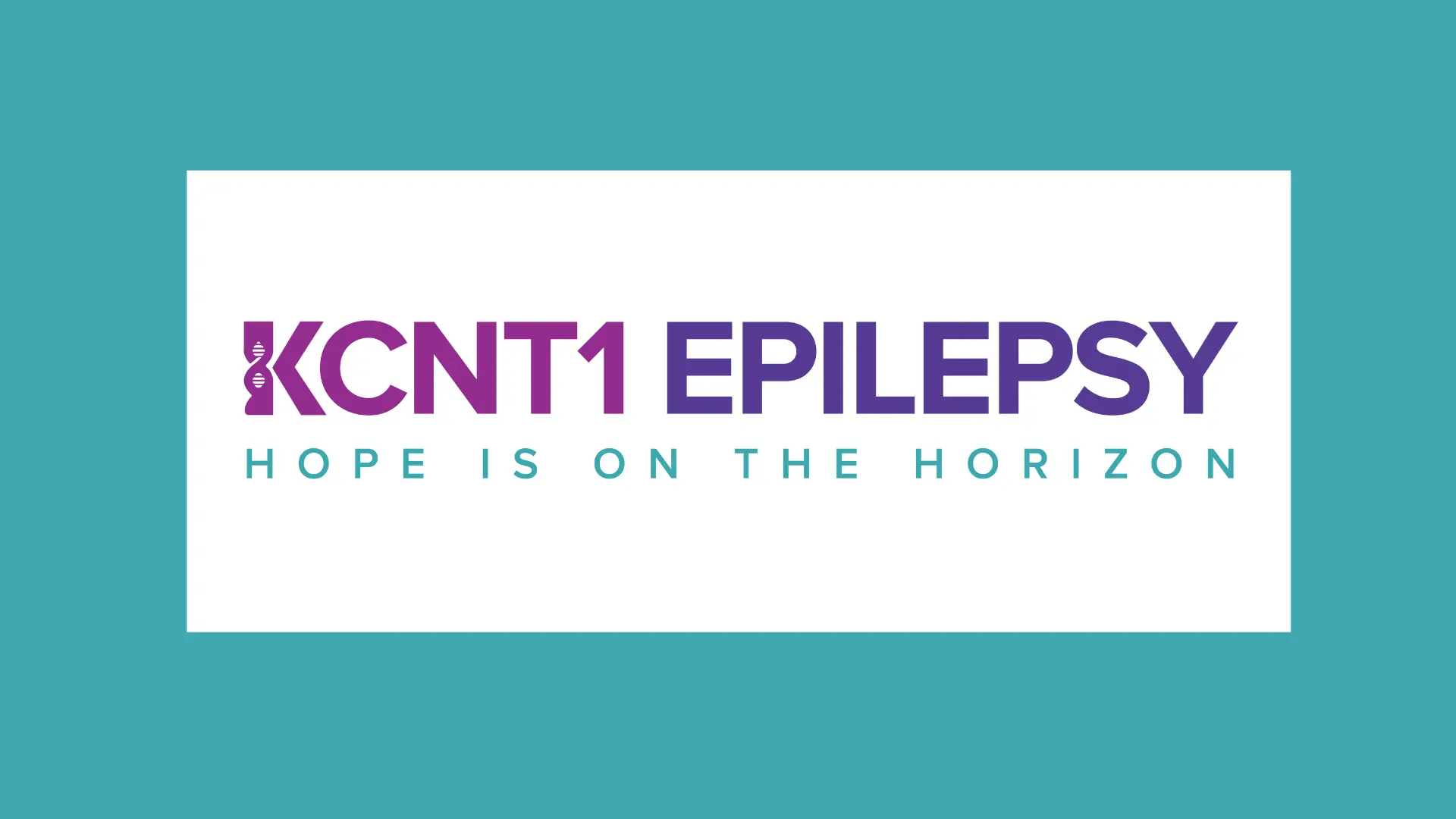
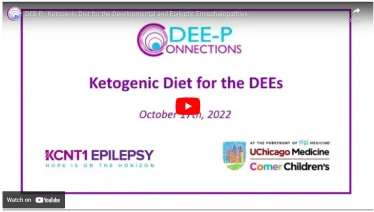
Ketogenic Diet for Developmental and Encephalitic Epilepsy
In this co-sponsored webinar, learn about the science behind the ketogenic diet from experts at UChicago and Comer Children’s Hospital.
KCNT1 Scientific Conference – November 28, 2022
Prevalence Models for KCNT1 – Discussion
Maddie Gillentine, Phd, Seattle Children’s Hospital and Ron Sederman, CEO Ambit, Inc present their models
See Ambit Poster from AES
Family Conference – November 29, 2022
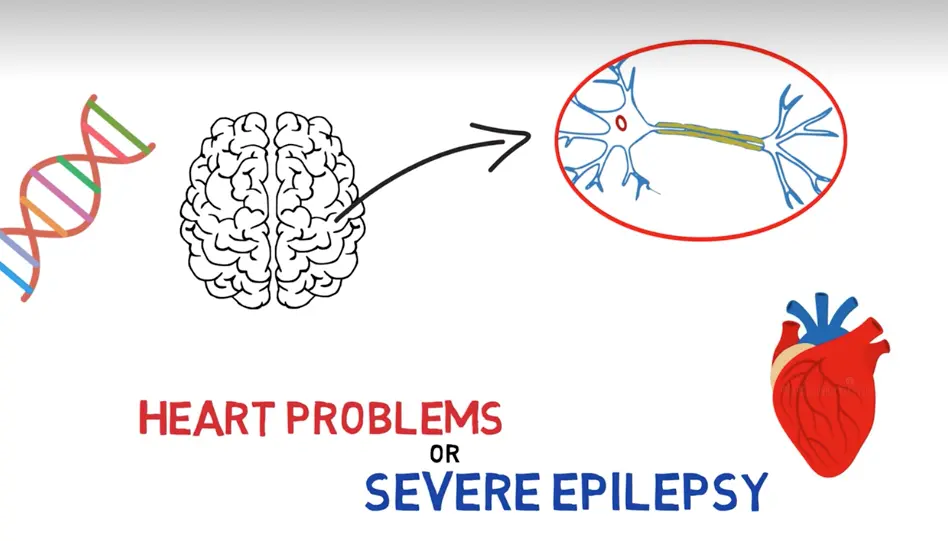
Need Help Explaining KCNT1 Related Epilepsy?
Genetic diseases are complicated. This video may help you explain KCNT1 related epilepsy to your friends and neighbors.
Past webinar recordings
What is a Natural History Study?
Dr David Bearden – Department of Neurology, Division of Child Neurology, University of Rochester School of Medicine
Dr Viet Nguyen – Medical Director, Epilepsy and Neurodevelopment, Biogen

Finding the Best Treatment Options for Your Child with KCNT1 related Epilepsy
Dr David Bearden , University of Rochester Medical Center
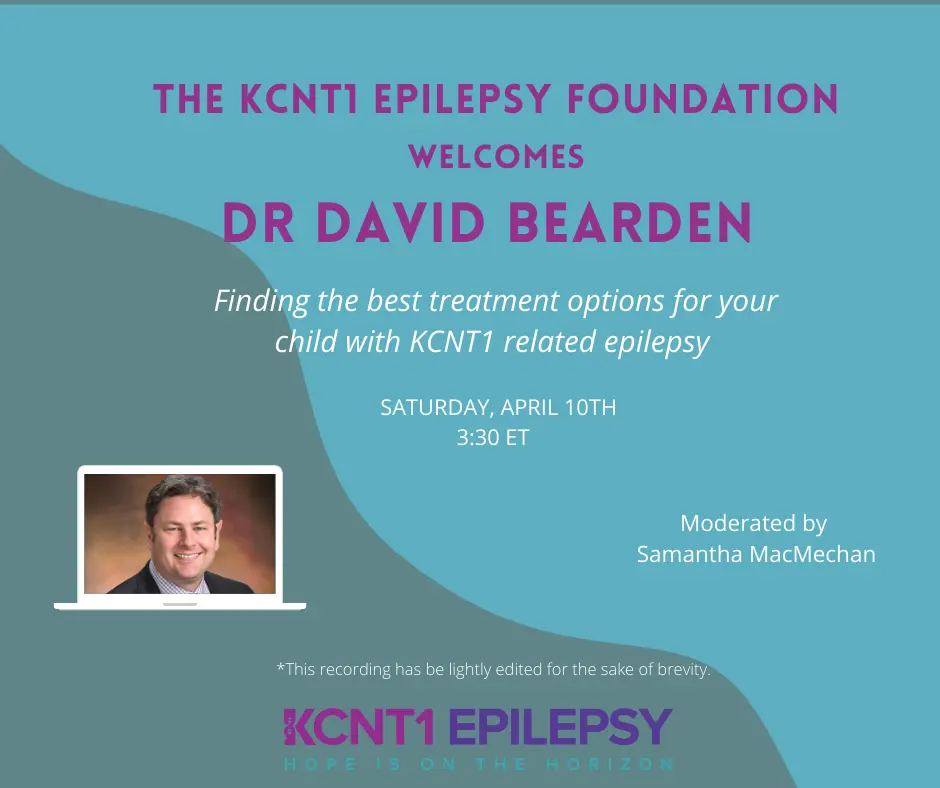
Fostering Communication in your Child
Tanna Neufeld, MS, CCC-SLP Lesley Olswang, PhD Julie Feurerstein, PhD, CCC-SLP Amy Pace, PhD, CCC-SLP
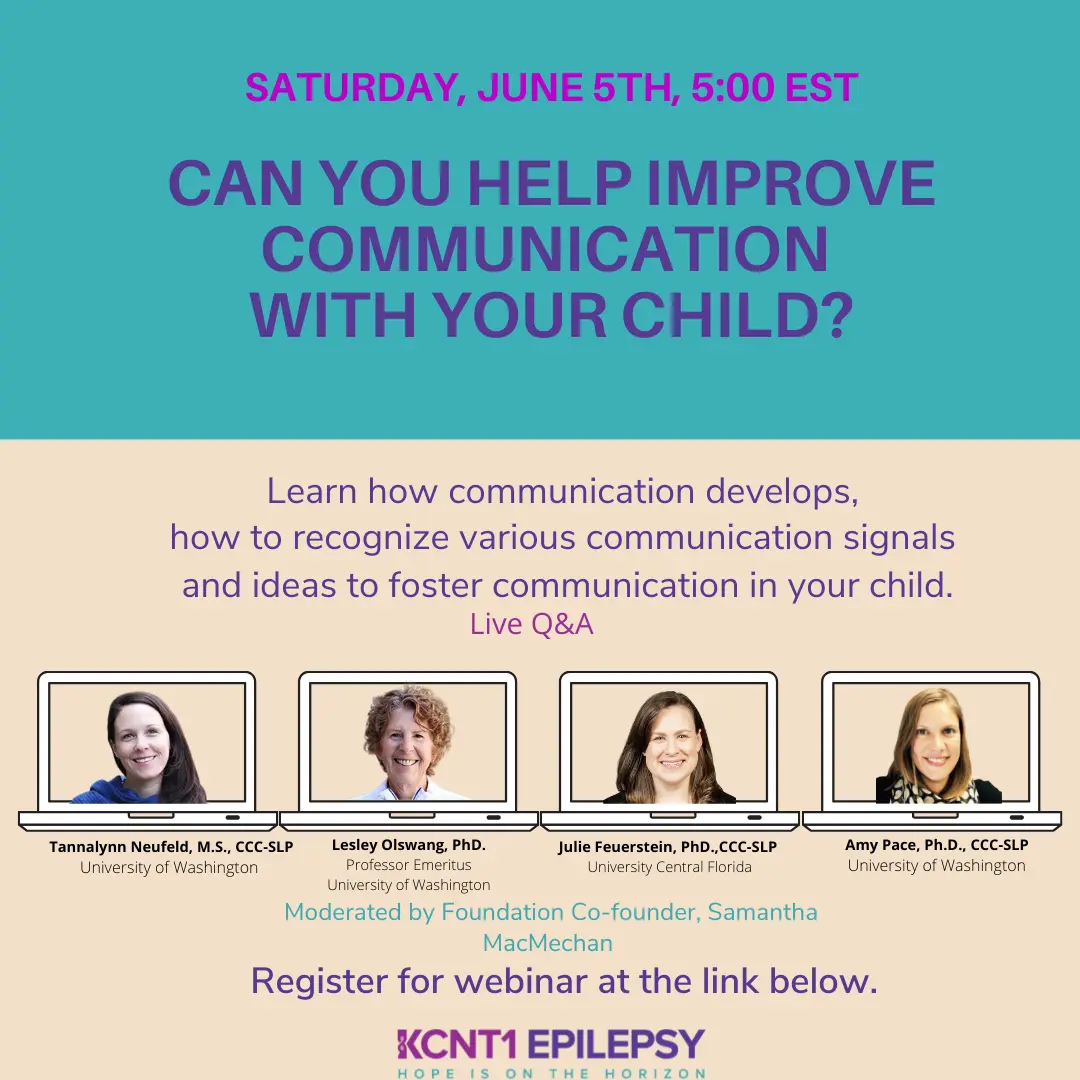
Resource Links
by Topic From Our Friends Around the Internet
Support Comes in Many Forms
- KCNT1 Foundation Facebook www.facebook.com/kcnt1epilepsy/
- KCNT1 Gene Mutation Support Group www.facebook.com/groups/1654437541472524/
- The Connected Parent https://www.theconnectedparent.net/
- Sibling Kits https://kcnt1epilepsy.org/vip-sibling-kits
Find an Epilepsy Specialist
- Find an Epilepsy Doctor who is member of the American Epilepsy Society my.aesnet.org/FindaDoctor
- www.epilepsy.com/make-difference/learning-healthcare-system/elhs-community/epilepsy-healthcare-centers-and-providers
Types of Seizures
Difficult to Control Refractory Seizures
Sudden Unexpected Death in Epilepsy (SUDEP)
Diet Therapy Including Ketogenic Diet
- www.epilepsy.com/learn/treating-seizures-and-epilepsy/dietary-therapies/ketogenic-diet
- www.chop.edu/centers-programs/dietary-treatment-program
- pubmed.ncbi.nlm.nih.gov/29524777
- https://charliefoundation.org
- https://charliefoundation.org/find-a-hospital/
About EEGs
Obtaining Early Intervention Services
- www.parentcenterhub.org/ei-overview/
- Child Find operates in every state to identify babies and toddlers who need early intervention services because of developmental delays or disability. You can use the Parent’s Record-Keeping Worksheet to keep track of this important information
How to Sign Up for Disability Benefits
Transition to Preschool and IEPs
Epilepsy Sites
Drug Delivery and Clinical Trial Process
How to work with Health Insurance
Monitors
Sami Video Sleep Monitor and Alarm – use this link for a discounted cost website
Sibling Support
Comprehensive resource list
Choosing Healthcare Providers
We maintain a health care professional referral list for our KCNT1 community. If you need information about a physician or other health care provider in your area, or would like to be added to our list, please contact info@kcnt1epilepsy.org. Please note, being on the list does not in any way suggest the KCNT1 Epilepsy Foundation endorsement or preference for any particular individual or group.
Rare Disease Video Series
- rarediseases.org/for-patients-and-families/information-resources/patient-and-caregiver-resource-center/
- Search for info about rare diseases https://www.librarey.com
Rare epilepsy pre-recorded webinars from DEE-p Connections
Congenital Heart Defects and Surgery (MAPCA’s)
Pulmonary atresia (PA), ventricular septal defect (VSD) and major aortopulmonary collateral arteries (MAPCAs) is a rare type of congenital heart defect, also referred to as Tetralogy of Fallot with PA/MAPCAs and is seen in some children with KCNT1 mutations
- https://www.cdc.gov/heart-defects/about/pulmonary-atresia.html
- www.childrensmn.org/childrensheartclinic/downloads/8/2019/08/pulmonary-atresia-mapcas-pavsdmapcas.pdf
Medications
- www.epilepsy.com/learn/treating-seizures-and-epilepsy/seizure-medication-list
- www.epilepsy.com/learn/treating-seizures-and-epilepsy/seizure-and-epilepsy-medicines
Quinidine
Cannabidiol
Types of Feeding Tubes
- oley.org/page/ChoosingTheRightTube
- www.aboutkidshealth.ca/article?contentid=2822&language=english
- www.feedingtubeawareness.org/wp-content/uploads/2015/05/ParentGuide.pdf
How to register for Medicaid Waivers (U.S. only)
- In the United States, families can apply for a federal Home & Community-Based Waiver (HCBW), TEFRA, or Katie Beckett Waiver. This program entitles children to Medicaid coverage who would not otherwise qualify due to their family’s financial status (children may qualify independent of family income). This program is administered on a state-by-state basis and varies greatly depending on the state. The HCBW can be obtained by contacting your local Department of Family & Children Services. http://www.kidswaivers.org
Parent Support Networks
- Family Voices is a national family-led organization of families and friends of children and youth with special health care needs (CYSHCN) and disabilities. familyvoices.org
- Parent Center Hub: There are nearly 100 Parent Training and Information Centers (PTIs) and Community Parent Resource Centers (CPRCs) in the US and Territories. These Centers perform a variety of direct services for children and youth with disabilities, families, professionals, and other organizations that support them. www.parentcenterhub.org/the-parent-center-network/
- Parent to Parent programs offer parent to parent support as a core resource for families with children who have a special health care need, disability, or mental health concern. Through a one-to-one “match,” experienced support parents provide emotional support to families and assist them in finding information and resources https://www.p2pusa.org/parents
Peer Support Specialists for parents of children with neurological conditions
